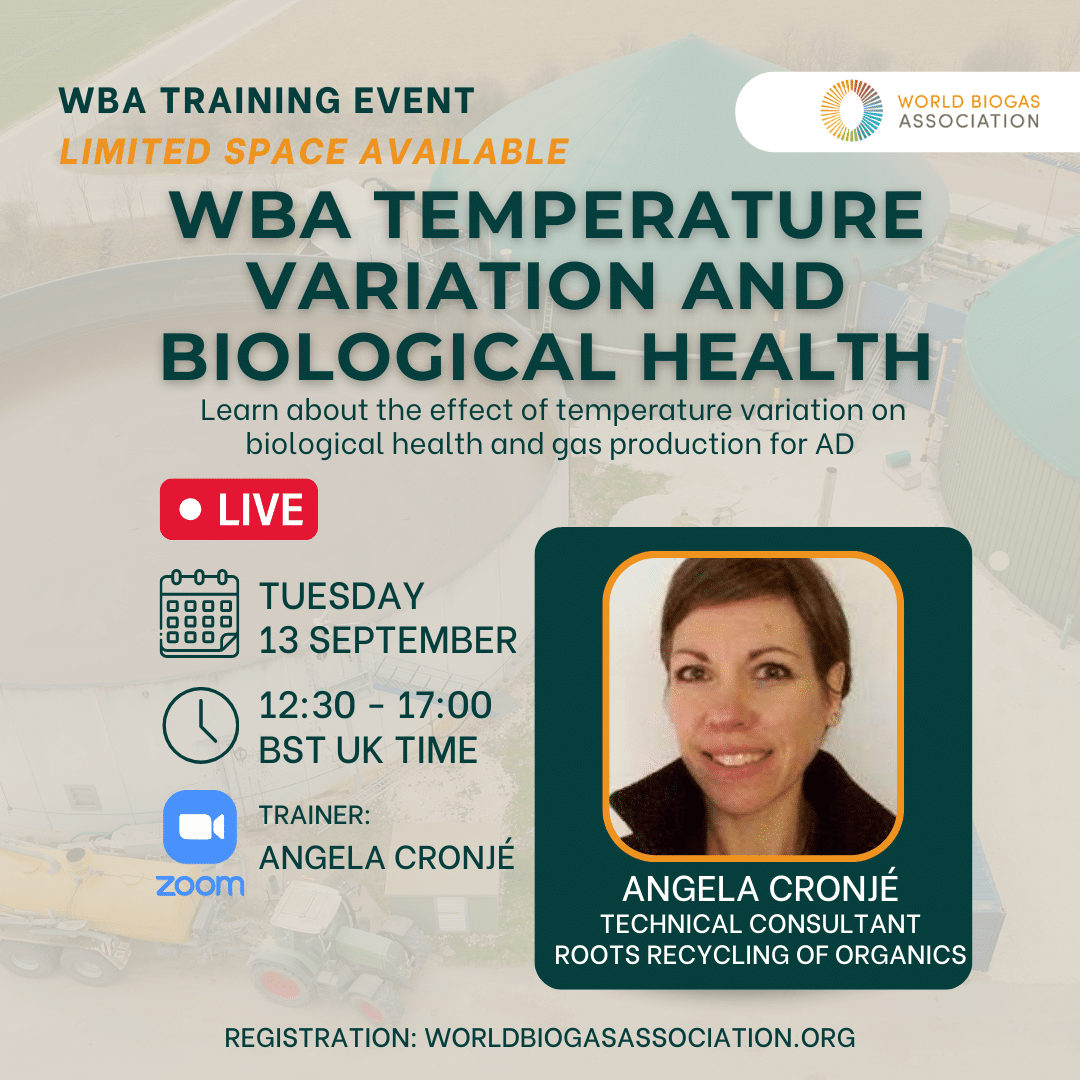WBA Temperature Variation and Biological Health Training Course 
LIMITED SPACE AVAILABLE
Tuesday, 13th September
12:30 – 17:00 BST UK Time
Online via Zoom
Overview
The training is delivered by Angela Cronjé, a chemical engineer with 20 years experience in organic waste processing on operational plants.
This training is about the effect of temperature variation on biological health and gas production for AD. AD plants are typically built with lots of insulation to keep substrate warm even in cold winter temperatures, but this can contribute to increasing tank temperatures and biological risks in the hotter summer months. Gas production can also suffer when process temperatures drop due to low ambient temperatures or failures in heating systems. Operators will gain a better understanding of how process temperatures vary, what this means for biological health and gas production and what control measures should be considered to mitigate the risk of serious biological failures.
Learning outcome
To gain a better understanding of how temperatures can fluctuate in a digester, what this means for biological health and gas production and what practical control measures should be considered to mitigate the risk of serious biological failures.
Who is it for?
Plant operators, plant managers, general manager/directors, biologists, feedstock managers, consultants and more.
Agenda
- How does a digester over-heat?
- Case studies
- Importance of data collection and interpretation
- What are the ‘normal’ operating temps and why?
- The effect of changing temperatures on digester biology
- The effect on gas production and plant design considerations
- Case studies
- The risks of a high ammonia diet
- Ammonia chemistry and inhibition
- The effect of changing temperature on digester ammonia
- Case Studies
- Plant design
- Heat management and temperature control
- Diet planning
- Failed biology recovery
Ticket prices
WBA Member: £99
WBA Non-Member: £149
National Association Members: £129
Contact us for group discounts

